No emission goals without sustainable land management
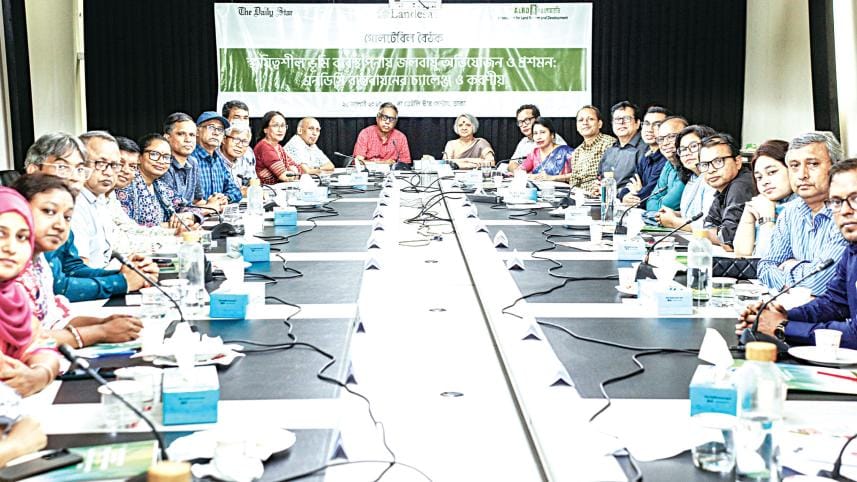
Association for Land Reform and Development (ALRD) and Landesa, along with The Daily Star, organised a roundtable discussion titled "NDC Implementation Challenges: Accelerating Mitigation & Adaptation through Sustainable Land Management", at the newspaper's office in Dhaka on July 21, 2025. Below is a summary of the discussion.
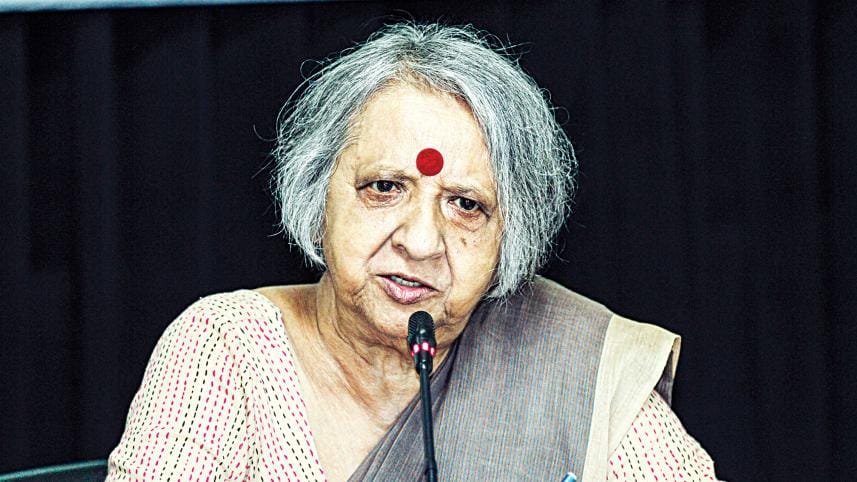
Khushi Kabir
Country Lead, Stand for Her Land (S4HL) campaign and Climate Action Coalition, Bangladesh; Coordinator, Nijera Kori; Chairperson, ALRD
Our conversations around climate change are often disconnected from the realities of everyday life. The goal of today's discussion is to bridge that gap, especially for those of us leading organisations that work on these issues. We also need to consider how we can more effectively engage with policymakers and enhance our contributions to the fight against climate change.
For those of us working in agriculture, it's important to recognise how our production processes contribute to greenhouse gas (GHG) emissions. We must remain aware of this impact and take responsibility for it. The recommendations we make locally could also have relevance on a global scale.
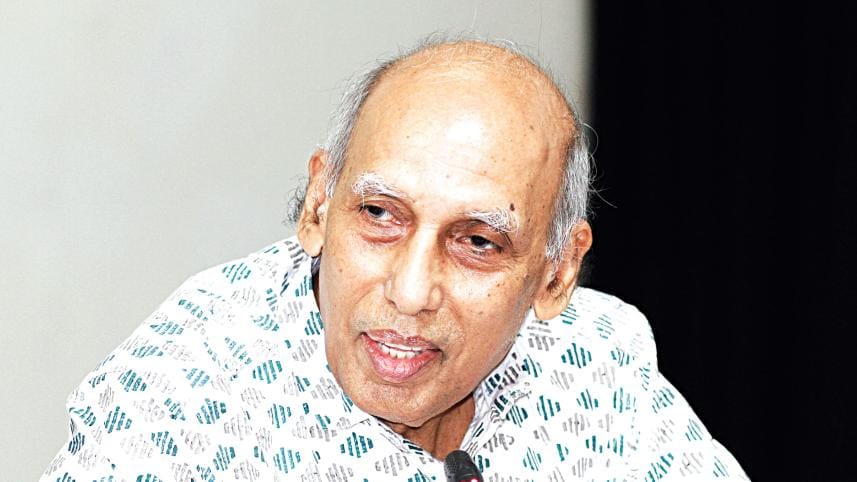
Shamsul Huda
Executive Director, ALRD
Carbon and greenhouse gas (GHG) emissions from agriculture are a major contributor to global warming. However, we must remember that agro-based countries like ours in the Global South contribute far less to this problem than developed nations. Despite this, it is often the developed countries that make the biggest promises at international summits like COP.
However, most of these promises remain unfulfilled. It's our responsibility to hold them to account by continuing to bring forward these discussions, especially when it comes to the global fight against climate change.
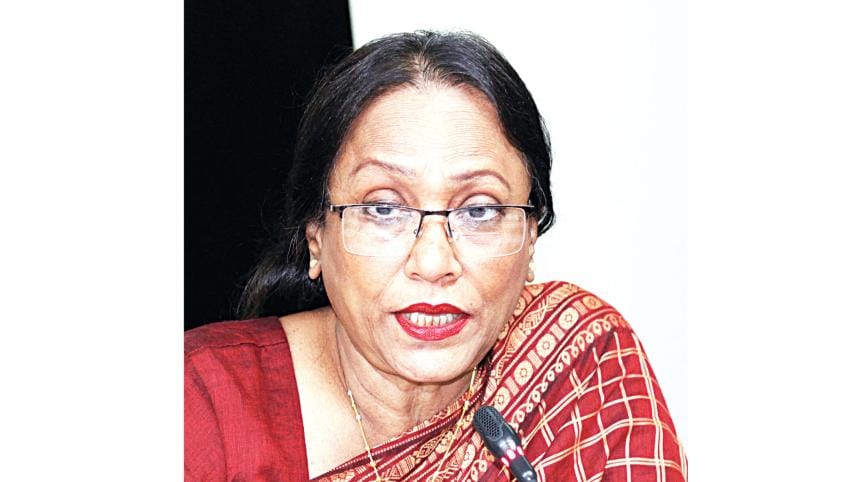
Rowshan Jahan Moni
Deputy Executive Director, ALRD; Country Coordinator, Stand for Her Land (S4HL) campaign and Climate Action Coalition, Bangladesh
The NDC (Nationally Determined Contribution) is one of the government's core commitments in the fight against climate change. It identifies five key sectors, and the most important among them is AFOLU (Agriculture, Forestry, and Other Land Use).
AFOLU covers emissions from agriculture, forests, land use practices, and related policy areas. The last updated NDC was introduced 2021, last year, the goals are still not well-aligned, and the responsibilities across sectors remain unclear. AFOLU covers emissions from agriculture, forests, land use practices, and related policy areas. The last updated NDC was introduced in 2021, last year; the goals are still not well-aligned, and responsibilities across sectors remain unclear.
One of the most important steps now is to ensure that the NDC aligns with our national land management procedures, including the use of fertilisers and other agricultural inputs. We also hope that civil society and sector experts can be included in policy-level consultations, so we can present concrete recommendations emerging from discussions like this one.
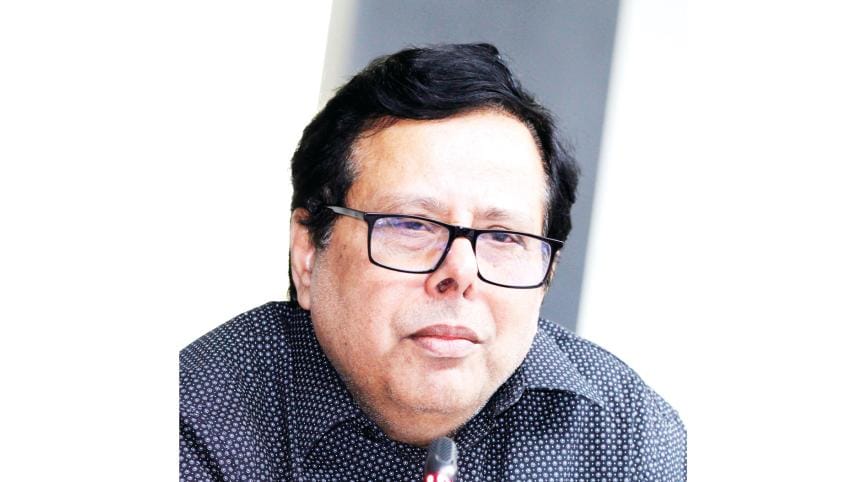
Dr. Dwijen Mullick
Research Fellow, Bangladesh Centre for Advanced Studies (BCAS)
Climate change is a global crisis, yet marginalised and indigenous communities remain its most vulnerable victims. Although Nationally Determined Contributions (NDCs) were introduced to curb emissions, current pledges still project up to 3°C warming by 2100—far above the 1.5°C target. For Bangladesh, one of the most climate-exposed nations, closing this gap is urgent.
Bangladesh adopted its first NDC in 2015 and updated it in 2021, integrating mitigation and adaptation measures with stronger focus on Agriculture, Forestry and Other Land Use (AFOLU) and waste management. The revised NDC raises the unconditional emission reduction target to 7% by 2030, with a conditional goal of 15%. While awareness of NDC goals remains limited, implementation and financing must now be prioritised with COP30 in Brazil approaching.
AFOLU contributes roughly 25% of global emissions through deforestation and unsustainable agriculture but also holds immense mitigation potential. Land-use planning, carbon sequestration, improved soil and livestock management, and reducing food waste can all deliver progress. Waste management, particularly urban organic waste, is another challenge that can be transformed into opportunities for green jobs and women-led innovation.
Nature-based solutions and ecosystem-based adaptation, recognised in COP28's Climate Solutions Roadmap, could deliver one-third of the global emission cuts required by 2030. For Bangladesh, inclusive approaches—such as community-led management of forests, wetlands, and mangroves—are essential for resilience, food security, and resource protection. Yet barriers persist: inadequate finance, weak institutions, and lack of recognition of women's and indigenous land rights in the NDC framework.
Bangladesh's Eighth Five-Year Plan aligns with global climate goals, but financing remains insufficient and poorly directed. To ensure a just transition, future NDCs must guarantee land rights, community participation, and clear implementation pathways. Sustainable land management is not only a climate strategy—it safeguards livelihoods, dignity, and a just future.

Dr. Farida Perveen
Deputy Director, Project Implementation & Evaluation, Department of Agricultural Extension
The Department of Agricultural Extension (DAE) is the largest in Bangladesh, with over 26,000 staff—14,000 of whom are Sub-Assistant Agriculture Officers working at the grassroots. This is our core strength, operating directly at union-level blocks.
Globally, 40% of all climate-related disasters occur in South Asia. Bangladesh, despite contributing only 0.56% to global greenhouse gas emissions, ranks 7th among the worst-affected countries. The agriculture sector is especially vulnerable.
In 2020, the Ministry of Agriculture issued a directive to align with NDC targets—cutting chemical fertiliser use by 50% by 2030, increasing organic fertiliser use by 35%, and raising AWD (Alternate Wetting and Drying) adoption by 20%. These shifts have significant food security implications, so practical, farmer-friendly strategies are vital.
By 2050, global rice and wheat yields are expected to decline, making adaptation critical. DAE is currently implementing 33 adaptation projects.
For mitigation, Bangladesh has launched a low-carbon rice pilot supported by ADB, with a Japanese partner developing emissions assessment methodology.
Agriculture drives GDP, food security, rural employment, and exports, yet remains highly climate-vulnerable. Adaptation practices include solar and drip irrigation, IoT-based automation, vermicomposting, and floating cultivation.
Legal frameworks exist, but sustainability requires a mindset shift. In low-lying areas, polynet systems offer temperature control. Precision agriculture—using GIS, remote sensing, and drones—helps boost efficiency and readiness for the Fourth Industrial Revolution.
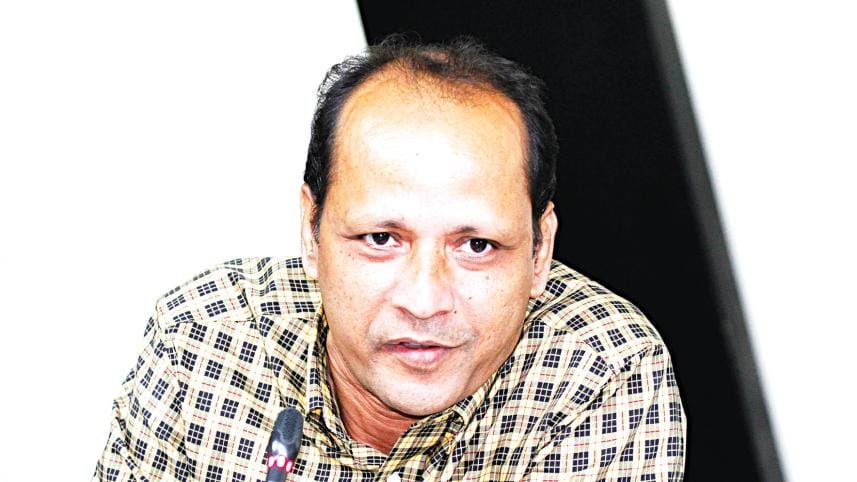
Dr Md. Moniruzzaman Khan
Associate Professor, Institute of Disaster and Vulnerable Studies, University of Dhaka
From a research methodology perspective, the most crucial step before starting any project is clearly defining the problem—it addresses half the challenge upfront. In sustainable land management, this means first designing an effective project management process and then developing environmentally sustainable solutions. We live in a "risk society," where many threats are human-made, yet problem-solving often remains one-dimensional, focusing narrowly on success, frequently measured by financial gain.
Take tourism as an example: when identified as a major driver of environmental degradation, it was rebranded as "eco-tourism," yet in many cases, the practices remain unchanged. Sustainability does not occur automatically; legal frameworks exist, but what is truly needed is a shift in mindset. Recent reform discussions have often lacked inclusivity, undermining their effectiveness.
Achieving real sustainability requires moving beyond individualism toward collective, inclusive solutions. Solidarity, participation, and shared responsibility are essential. Only through this collaborative approach can environmental, social, and economic goals be balanced, ensuring long-term sustainability and resilience in land management and broader development initiatives.
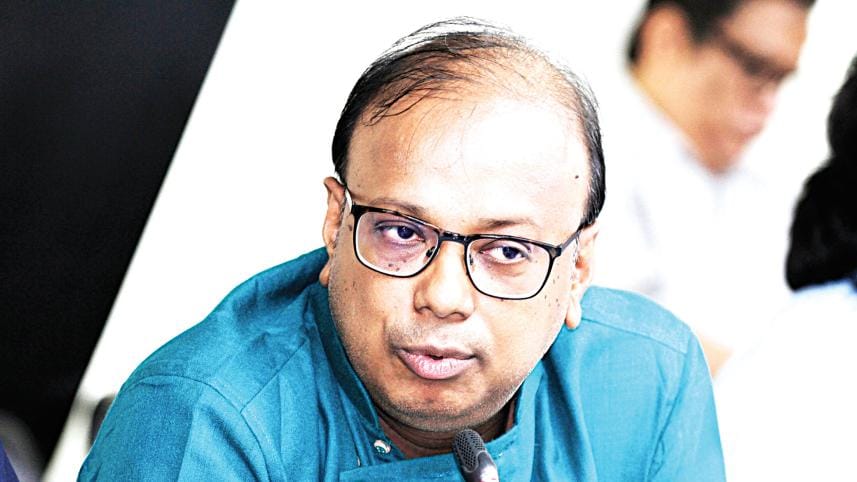
Gazi Mohammad Suhrawardy
Development Researcher, Coordinator, Centre for Knowledge
The government and policymakers need to prioritise this issue. However, our research suggests that this is not currently the case when it comes to AFOLU and loss and damage. One of the reasons for this may be that Bangladesh's total emissions are relatively low compared to other countries.
However, despite our smaller contribution, we remain extremely vulnerable to the effects of climate change. That's why our focus should be on mitigation, adaptation, and addressing loss and damage.
It is encouraging to see that the government is taking the NDC seriously. To make the process more participatory, both the government and civil society can play a crucial role. That said, implementation still needs to be treated as a top priority by the government if we want real progress.
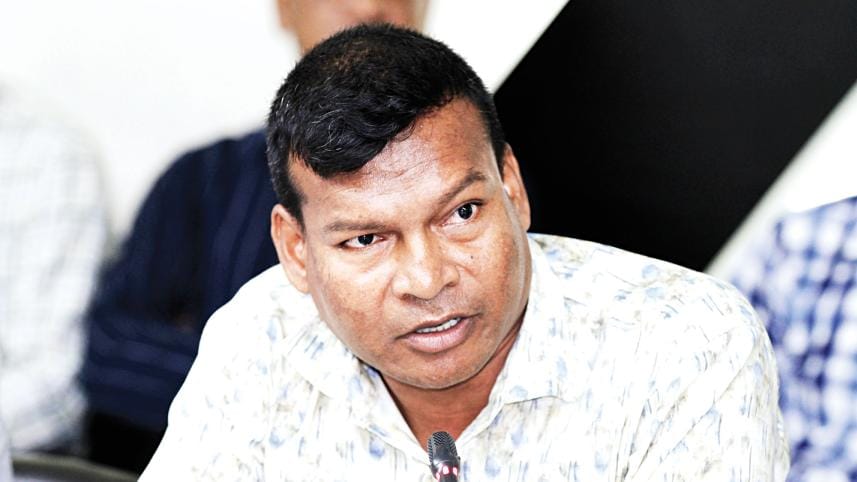
Krishnapada Munda
Executive Director, Sundarban Adibasi Munda Sangastha (SAMS)
Sustainable solutions must prioritise inclusivity, as indigenous communities in coastal areas are affected not only by climate disasters but also by certain development projects. Proper representation of these communities is vital. Area-based agricultural production should consider salinity challenges, while secure land ownership for indigenous people remains crucial. Clear guidelines on fertiliser use are needed at the upazila level. Moreover, shrimp and crab farming must be carefully planned to prevent further environmental degradation.

Afzal Hossain
Executive Director, Rural Underprivileged & Landless Farmers Organisation (RULFAO)
Technology remains scarce at the grassroots level. That's why we need to pay more attention to indigenous knowledge and practices, many of which we are gradually losing due to unnecessary market penetration by so-called convenient options. The market itself needs better regulation.
We also need to trust the processes that our farmers have long relied on. For example, sourcing water from underground is not a sustainable option in the long run. Given Bangladesh's landscape, relying on surface water is far more viable. To do that, we must protect and restore our rivers, because saving our rivers is essential to saving the agro sector.
Ultimately, our adaptation strategies need to be culturally contextual and sensitive to local realities.
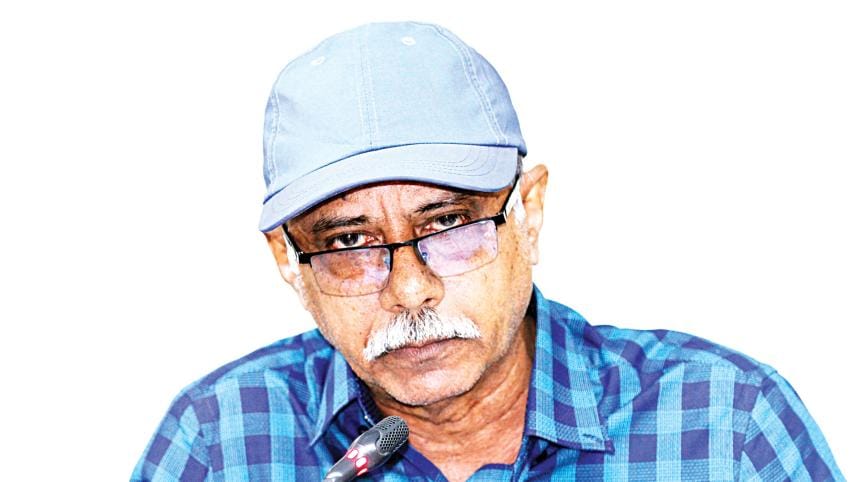
AHM Shamsul Islam
Executive Director, Speed Trust
LGED and WAPDA focus heavily on agricultural issues, but the main problem lies in the lack of coordination among the relevant agencies. While many projects claim to be participatory on paper, there is often little real engagement or involvement with the target communities.
Greater community outreach and better coordination are crucial, alongside placing more emphasis on the opinions and needs of the communities themselves.

ANM Fazlul Hadi Sabbir
Executive Director, Beneficiary's
Friendship Forum (BFF)
To address grassroots challenges effectively, more detailed information is essential. Chemical fertiliser marketing remains stronger than efforts promoting organic options, while guidelines on cattle feed remain unclear. These gaps hinder progress. With better coordination among relevant agencies, results can be significantly improved, ensuring sustainable practices and stronger support for farmers at the local level.
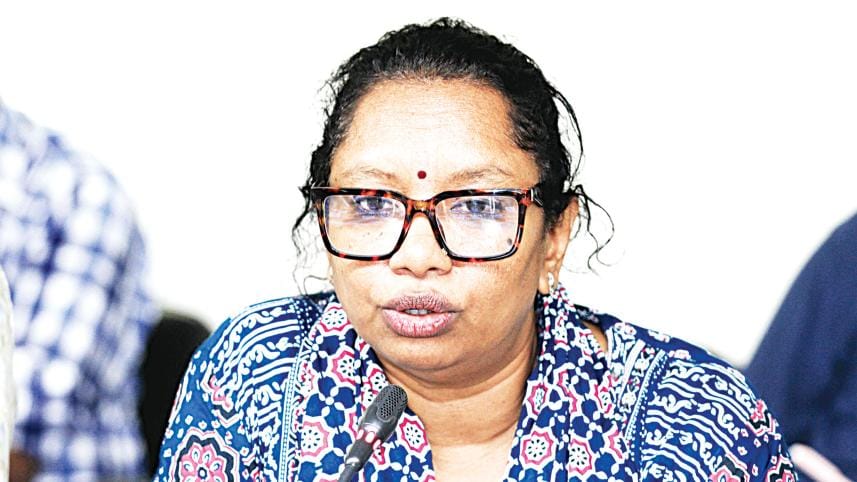
Lipi Rahman
Executive Director, Badabon Sangho
In my experience, women's participation remains neglected at the field level. We need to prioritise their voices and opinions. Many women are even deprived of land rights, which is another critical area that requires attention. To ensure meaningful participation, we must recognise their opinions, land rights, and contributions.
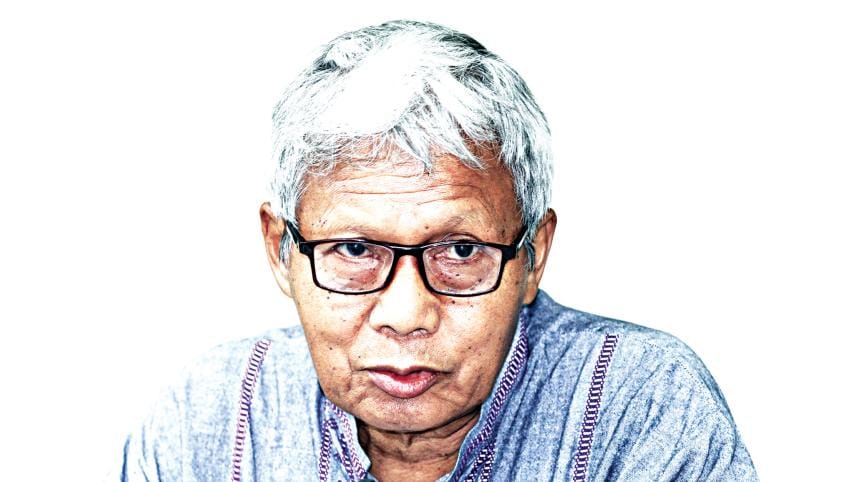
Ajoy A. Mree
Executive Director, ACDF
The goals of government agencies working on agriculture often directly contradict those focused on forest conservation. Frequently, agricultural development comes at the expense of forests. Even some forest development projects contribute to deforestation. Natural forests are being destroyed in the name of social afforestation and rubber plantations, and wildlife is slowly edging towards extinction.
We need to prioritise the survival of our natural forests rather than simply pushing towards social afforestation and eco-tourism.

Mezbah Uddin Mannu
Journalist
In Kolapara upazila, about 40,000 acres of farmland have been lost to unplanned development, while climate change has turned into a daily struggle. Farmers face recurring floods and crop failures due to heavy rains. Many have devised local innovations, such as using plastic bags to protect roots, with official support following later. Their resilience shows readiness to adapt if aided properly. Meanwhile, the 320 km coastal mangrove belt offers protection, but even minor disasters still cause devastating impacts.
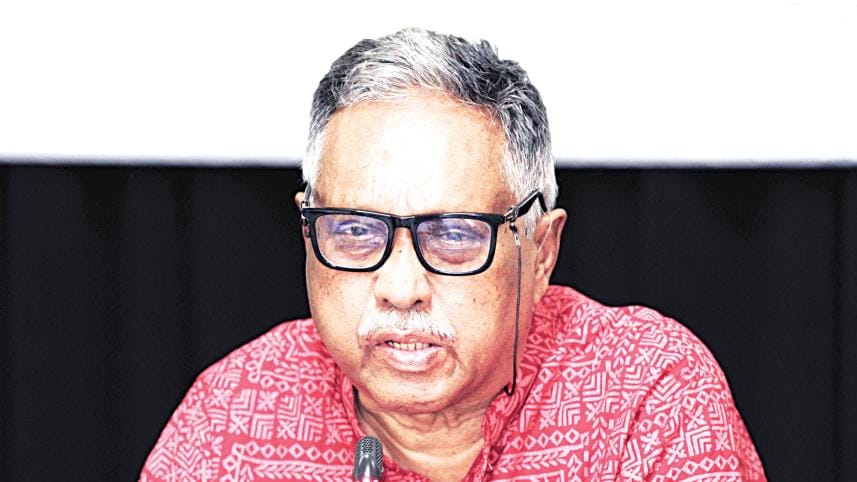
Professor Dr Ainun Nishat
Climate Change Specialist; Advisor, C3ER, BRAC University
One of the major issues with climate conferences and related discussions is the complete lack of continuity. This is a serious concern. We often don't send the right people with the relevant expertise to represent us or actively participate in these conversations. Civil society has an important role to play in this matter; it can and should pressure the government to take these issues more seriously.
Social forestry, as it's currently practised, goes against the very principles of true forest conservation. We keep talking about planting trees, but rarely discuss which trees should be planted or how different species contribute to carbon preservation. There's little awareness around mechanisms like LULUCF (Land Use, Land Use Change and Forestry) regulations, which are crucial for carbon accounting.
Climate change is not a distant threat. It is real, ongoing, and happening right now. Global temperatures could rise well beyond our targets if we don't act. This is not just a short-term challenge; we need to be thinking 30-40 years ahead, especially for the younger generation, who will inherit these consequences. And from a disaster management perspective, we must also ensure inclusion, especially of diverse gender identities. It's time to move beyond binaries and design truly inclusive climate responses.

Tanjim Ferdous
In-charge, NGOs and Foreign Missions, The Daily Star, and moderator of the session
As the Government updates its Nationally Determined Contributions (NDC) policy, setting emission targets in key sectors like agriculture and land, the absence of clear implementation pathways remains a challenge. Without grassroots participation, awareness, and equity in land management, our climate ambitions may fall short. The goal of this discussion was to shape a realistic, inclusive, and sustainable land management approach for the upcoming NDC update.
Thank you all for your valuable insights—may they guide more effective and people -centred climate action moving forward.
Recommendations
- Align NDCs with land, agriculture, and climate policies
- Secure land rights for women and indigenous communities
- Strengthen institutional coordination and implementation roadmap
- Promote climate-smart agriculture and sustainable forestry
- Ensure community participation and local knowledge integration
- Increase access to climate finance for marginalised groups
- Enhance transparency and representation at climate platforms



 For all latest news, follow The Daily Star's Google News channel.
For all latest news, follow The Daily Star's Google News channel.
Comments